By Col Hellmuth
The sizeable public gathering had arranged itself into innumerable cliques. To the front and centre of the red granite paving, encircling most of the integrated Jagamarra-designed mosaic, a roped-off area was reserved for VIP’s. In this section the distinction was split, without need of a physical barrier: into the men; and their wives, partners or mistresses.
One of the VIP’s, a Mrs Prudence Smith — dressed to the hilt for the occasion — was garnering most of the attention of her peers. She helped herself unselfconsciously from a plate of the superior quality hors d’oeuvres her newly acquired status ensured.
“You must be so proud!” gushed one of the very important women, the nineteenth or twentieth to do so since Prudence had arrived.
She nodded politely, her mouth full of camembert cheese and stuffed olives.
“Just imagine — having your own son running the Country . . . and its sovereignties!” effused another.
Again: “To be the first installed . . . to such a unique position. . . ”
“No more politicians, running the nation . . . no more politics!”
The last comment had likely been uttered without the backing of any deep philosophy, and second from last had been mischievously miss-aimed above her head by an unknown assailant in rainbow-hued attire; the irony hadn’t failed to miss its target in either case and both were accepted as prima facie compliments.
“Richard and I are so very proud of Algy . . .” Mrs Smith beamed and smoothed down the tousled hair of her young daughter, standing close beside her. “And Ursula, too, aren’t you darling . . . ?”
The pig-tailed little girl just sniffed and wrung her small hands, looking miserable; nobody seemed to notice. She longed to be by her father’s side, where the atmosphere seemed more jovial; less brittle and contrived — but she knew her mother would only veto the idea and likely parrot her father’s favourite saying — the grass is always greener — if she requested this deviation from etiquette.
The conversation took a turn very familiar to Mrs Smith, and she tackled it with her usual aplomb:
“. . . a nickname. Richard and I are both SF tragics, though our tastes are a little different. I'm more into the supernatural . . . we met at a convention back in ’42. Gosh! That makes me sound so old! Luna City was just a frontier outpost . . . Tycho was still —
“Of course, I was still very young back then.”
Her audience tittered politely.
Ursula’s mind wandered. Of the Smith family, only she had actually been to the Moon. She’d spent a whole week there last year, at space-camp; an obvious ploy to divert her from brooding on her brother’s sudden absence. The main attractions at Luna Park had been a disappointment. A roller-coaster or Ferris-wheel just aren’t nearly as thrilling at only one-sixth gravity — though the massive open-to-vacuum, ten acre bouncy-castle had been a hoot, even in a cumbersome spacesuit.
“Richard was — is — a big fan of Budrys, and I, of Blackwood . . . so we named him Algis Algernon, hence ‘Algy’.”
The highlight of the trip, to Ursula’s surprise, had not been the fun park at all; it had come after the monorail journey to Tycho Reserve, at the heart of Luna City. The entire crater, sealed over in 2052 with a variable-opacity dome and later pressurised with a breathable atmosphere, was now an arboretum and sanctuary for Australasia’s endangered flora and fauna. The project was an engineering marvel: solar radiation was cleverly harvested, converted and channelled to create distinct environments with their own separate weather systems — from deserts and savannahs, to tropical rainforests. Kangaroos and pademelons could be observed leaping twenty metres into the air and travelling twice as far. Cassowaries jumped from ground to limb and tree to tree. Once high up in the jungle canopy — having now unexpectedly adapted to an exclusively carnivorous diet — they waited for unsuspecting prey to pass below before launching for the kill like wingless pterodactyls, plummeting rather than gliding, their long bright-red wattles fanning out behind them like the tails of a kamikaze’s head-scarf. Some species of winged birds had adapted to the low gravity in strange ways, sometimes flying upside down for no apparent reason.
Algy, would have loved it.
***
In the other inner-circle — clustered around a table offering prawn cocktails; oysters au naturel, Sauce de Luna or Kilpatrick and fried chicken among numerous other delicacies — Dick Smith (unrelated to the former electronics mogul, much to his chagrin), having been ordered to stay sober for the occasion by his wife, was keeping it clean and telling mostly the same stories as she:
“. . . There was, as yet, no realised ‘Man in the Moon’ back then either — only imagined — no Luna Park, see?”
All heads unconsciously looked to the horizon where the Moon’s orbit, currently at perigee, had it already in the midday sky. Given present lunar phase (waxing gibbous, imminently full), both the goofy, toothy face implied by the geometric architecture and cunning placement of various superstructures composing the massive amusement park — proudly built upon the ‘Sea of clouds’ by Australians, on sovereign soil — and its attendant spaceport, were visible. The timing of the upcoming ceremony was unlikely to be coincidental, thought Richard.
“Back then, we still hadn’t discovered the remnants of the original Lunarian civilisation: hidden away — underground, on the dark side — as it was. And back here on Earth, the Vegans — with their alien ideas and strange diets — still had us convinced they were human . . . cheeky buggers, eh, trying to trick us by using a lower-case vee!”
More laughter: fuller bellied this time, the champagne kicking in.
Smith was no astronomer, nor anthropologist: his background was selling tractors. He did not consider this a handicap. He’d learnt more life skills as a salesman than he’d learnt as a student. He liked to brag he could sell ice to a Texan Joe; especially whilst confining his global warming contributions to a barstool. When colonisation of the Moon started gaining momentum (and before Galactic Law, in its infancy, had had a chance to catch up) Smith had seen an opportunity and hastily assembled the necessary backing to set up an Earth-to-Moon import-export monopoly. He had stumbled onto a lithium mine (one of the good sort—that don’t go bang and make period artwork on the walls with one’s intestines, à la Jackson Pollock). One could — literally — sell the Moonies a bag of dirt: they would buy anything that reminded them of home. At astronomical prices. Algy, and his sister, had gone to the very best schools that money could bribe. Algy’s school had been the more exclusive of the two.
“No thanks, Rodney,” Smith waved away the dipping bowl proffered, “I’ll be drawn and quartered by the wife if I drip soy-sauce down my suit: on this, of all days.” Unlike his wife, Richard Smith preferred to avoid making any direct reference to his intellectually disabled son.
“Spring rolls just aren’t the same without, though,” he muttered, largely to himself. He had sampled the natural oysters and found them lacking. He was wise, from many meals taken on the road at dodgy motel restaurants, to the practice of disguising less-than-fresh molluscs via Kilpatrick and had involuntarily shuddered when envisioning the atrocities that might be hidden beneath ‘Moon sauce’ — studiously avoiding both. He wished for the seventh or eighth time the caterers were serving beer or Jack Daniels instead of champagne.
“Have you tried these fried mushrooms, Dick?” encouraged Rodney, again. The man was none too subtle in his quest to ingratiate himself.
“No, no psychedelics for me today thanks, Rod. I want to stay clear headed.” At least until the ceremony’s over, he thought. After that though . . .
***
“We wanted a name that wasn’t too common: my husband, being encumbered with the surname Smith, you see?” Prue Smith continued, in what was threatening to become a monologue as she eyed a plate of samosas; deciding, with reluctance, they’d be too dry without sauce and too risky with it. For the eighth or ninth time, Prue wished the caterers were serving martinis or margaritas. She soldiered on, in a roundabout manoeuvre, to explain how the double-A initial insured her son’s name would at least precede all other Smith’s on an alphabetised list.
“Lucky you didn’t name him Winston,” commented the woman in world flag colours — her second jibe directed at Prudence. Mrs Smith gave her a withering look. She recognised the woman now from the television: an agitator. She had headed the Floral and Fungal Happiness Society. Thanks to her campaigning, farmers now not only had to worry about the weather, crop failure and bankruptcy — they had to worry over charts of arbitrary figures, allegedly describing the mental health of their harvest, as well. How dare this vulgar woman sully her conversation by invoking the protagonist of that nasty outlawed novel of Blair’s — in association with her son, to add insult! — and no wonder said author had employed a nom de plume when penning such heresy! Mrs Smith hadn’t actually read 1984, at least, not the original version. The censored tome had been redacted into incomprehensibility and was seven pages long. Nor had Prudence read Bradbury’s Fahrenheit 451, before all relinquished copies were burned, but it was doubtful she would have appreciated his lost masterwork, either.
Her attention was diverted by the silent arrival of a black electric limousine in the near-distance. The chauffeur emerged, then opened a door for the outgoing prime minister, who was quickly flanked by two burly bodyguards. Several cars belonging to the press had arrived earlier. Their occupants now began to dutifully follow the PM — like they were pigeons and he was a deflated, ruptured packet of breadcrumbs.
“I’d better go join my wife and daughter,” Smith excused himself.
***
The roped barricade was efficiently dismembered for the prime minister and his entourage, the ruckus failing — as had the prefatory tread of the privileged — to stir any long-forgotten ghosts from their ‘Possum and Wallaby Dreaming’ (as tiled, and titled) underfoot.
Despite wearing dark glasses, it was obvious the bodyguards were disinterested. Understandably so. Like the PM, they would probably both be unemployed by midnight tonight. One of them spotted the table with fried chicken and wandered off towards it.
“Mr and Mrs Smith, it’s an honour to meet you,” articulated the PM — although his countenance contradicted — proffering his hand.
“Likewise, Prime Minister, Greazy.” Smith shook the politician’s hand with enough gusto to make him wince. Mrs Smith offered a curt nod: she’d never much liked the man.
“And who is this young lady?” crooned the prime minister, in his best baby-kissing voice.
“Constance Lee Skratchen,” countered Ursula, wiping pastry crumbs from her hand onto her already condiment-stained dress, to her mother’s horror and embarrassment, amid a flurry of camera-flashes. “How’s your bum, for grubs?” She shook the PM’s outstretched hand; squeezing his digits with all the force her small hand could muster, making him wince again. Recovering swiftly, the leader leaned down, his face unnaturally, untenably, close to hers: tightly framed for the cameras. A boom-mike was thrust above. The microphone was cloaked in one of those pop-shields that look like something lopped off the rear-end of a woolly mammoth. It, or the prime minister’s breath, kind-of smelt that way too. Ursula wished the ceremony organisers would just get on with it.
“Your big brother is a Very Important Person, young lady — with a Very Important Job. Did you know he scored the highest of anyone in the Country — ever — on all of his aptitude tests?”
“I know.”
The prime minister had carefully omitted to mention that testing had broached national borders as well as provincial. Ursula hadn’t seen her brother since shortly after he’d sat for his battery of compulsory government tests, when he’d been taken away by serious-looking silent men in a big black silent car for a second round of testing.
“Eidetic. Unbiased. Politically neutral.
“A fully-fledged idiot savant . . .” Greazy tapered off distractedly.
“Ah, that’s our cue to begin,” the PM intoned, with visible relief but little zeal — turning on his heel and heading brusquely into parliament to perform his final official duty — as the clocks struck thirteen. . .
***
The Great Hall was packed to capacity. All Ursula could see over the shoulders of the sweaty crowd — packed in as tightly as economy-class Luna-rocket passengers, even the VIP’s — was the top of an ancient musty-looking tapestry hung in several pieces. After decades of absorbing dust and echolalia from the hall it didn’t much represent anything to her. She tugged at her father’s suit jacket. He looked down, his face looking momentarily grim as he seemed not to recognise her before quickly transforming back to its usual radiant jolliness. She thought it still looked somewhat forced. Like a mask, hiding his real face. Smith hoisted his daughter up on to his unusually slumped, broad shoulders. Her mother stood beside him staring ahead with all the animation of a marble statue, her face pale; stricken. She looked like parts of her might break off if something were to bump into her. There were many fine lines radiating from the corners of her mother’s eyes and mouth that Ursula had never noticed before.
The speeches hadn’t yet begun; only a dull murmuring of anticipation from the public stirred the stale air. There was no sign of the new monstrosity (code named ‘Algis’ in honour of her brother’s significant contribution) that Ursula had heard variously referenced throughout the day as both a ‘synthetic brain’ and an ‘organic computer’. No-one had seemed sure which, if either, of the two it was — nor had anyone claimed a sighting. No doubt it was buried somewhere far below, safely contained in a blast-proof, radiation proof, climate-controlled vault. Maybe it was on the Moon.
The centrepiece of the room, roped off from the crowd, was a wooden plinth — draped with both the national and world flags. Atop the plinth was a heavily gilded white marble urn. An attached plate made of gold or maybe brass, carried the inscription:
‘A. A. “Algy” Smith
R.I.P.
Mentem copori praeferamus’
A tear ran down her face as she gazed at the ossuary containing the carbonised leftover parts of her big brother: the bits that weren’t required — or were destroyed or burnt out — in formulating The Algorithm.
Ursula wished, once again, they’d just cut through the pomp — and switch her big brother back on!
![]()
About the Author
Col Hellmuth
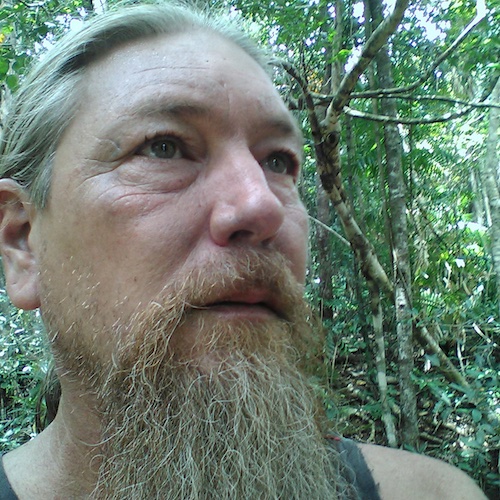
After spending much of his life moving around the Australian continent Col Hellmuth has finally settled on an off-grid lifestyle amidst the Daintree Rainforest, in his birth-state: Far North Queensland.
When he is not writing he likes to spend his time growing a beard (he still hasn't learned how to multi-task).
![]()


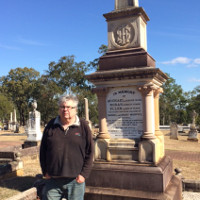



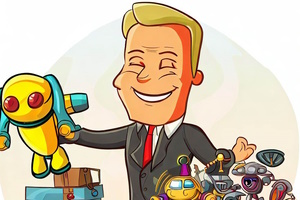


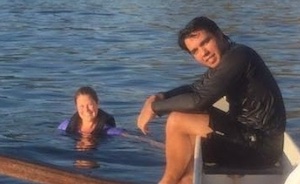



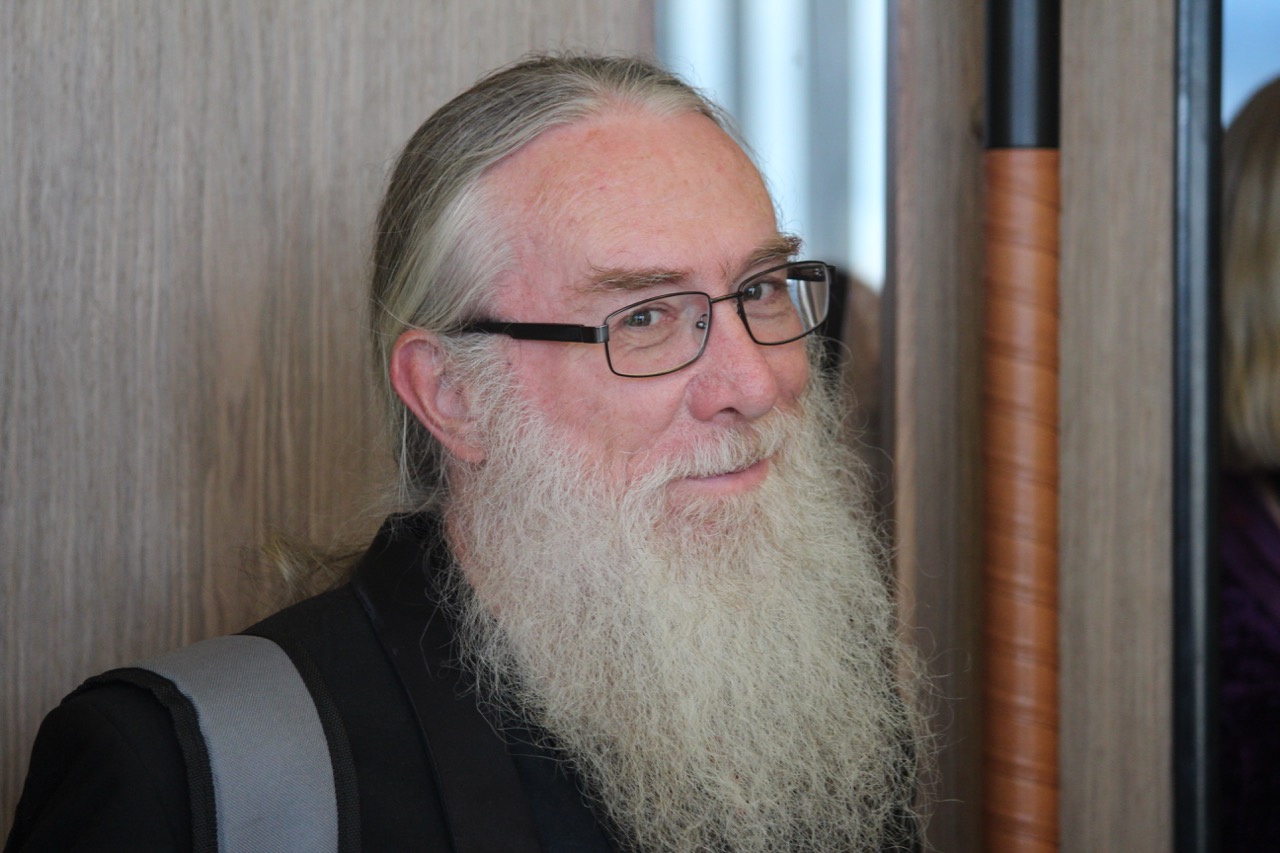
 Mark is an astrophysicist and space scientist who worked on the Cassini/Huygens mission to Saturn. Following this he worked in computer consultancy, engineering, and high energy research (with a stint at the JET Fusion Torus).
Mark is an astrophysicist and space scientist who worked on the Cassini/Huygens mission to Saturn. Following this he worked in computer consultancy, engineering, and high energy research (with a stint at the JET Fusion Torus).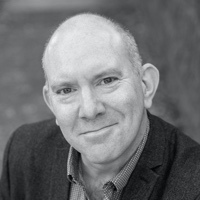 Alistair Lloyd is a Melbourne based writer and narrator who has been consuming good quality science fiction and fantasy most of his life.
Alistair Lloyd is a Melbourne based writer and narrator who has been consuming good quality science fiction and fantasy most of his life. Emma Louise Gill (she/her) is a British-Australian spec fic writer and consumer of vast amounts of coffee. Brought up on a diet of English lit, she rebelled and now spends her time writing explosive space opera and other fantastical things in
Emma Louise Gill (she/her) is a British-Australian spec fic writer and consumer of vast amounts of coffee. Brought up on a diet of English lit, she rebelled and now spends her time writing explosive space opera and other fantastical things in Ed lives with his wife plus a magical assortment of native animals in tropical North Queensland.
Ed lives with his wife plus a magical assortment of native animals in tropical North Queensland.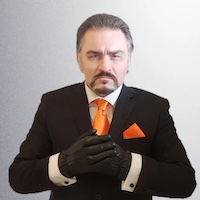 Chuck McKenzie was born in 1970, and still spends much of his time there.
Chuck McKenzie was born in 1970, and still spends much of his time there.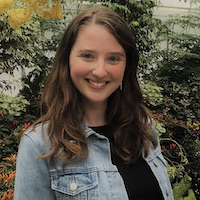 Sarah Pratt is an avid fiction writer and a Marketing Consultant.
Sarah Pratt is an avid fiction writer and a Marketing Consultant.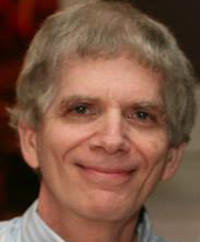 Barry Yedvobnick is a recently retired Biology Professor. He performed molecular biology and genetic research, and taught, at Emory University in Atlanta for 34 years. He is new to fiction writing, and enjoys taking real science a step or two beyond its known boundaries in his
Barry Yedvobnick is a recently retired Biology Professor. He performed molecular biology and genetic research, and taught, at Emory University in Atlanta for 34 years. He is new to fiction writing, and enjoys taking real science a step or two beyond its known boundaries in his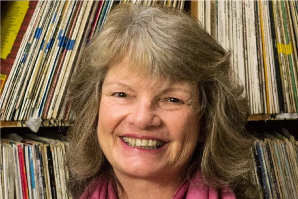 My time at Nambucca Valley Community Radio began back in 2016 after moving into the area from Sydney.
My time at Nambucca Valley Community Radio began back in 2016 after moving into the area from Sydney.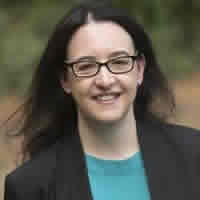
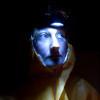
 Geraldine Borella writes fiction for children, young adults and adults. Her work has been published by Deadset Press, IFWG Publishing, Wombat Books/Rhiza Edge, AHWA/Midnight Echo, Antipodean SF, Shacklebound Books, Black Ink Fiction, Paramour Ink Fiction, House of Loki and Raven & Drake
Geraldine Borella writes fiction for children, young adults and adults. Her work has been published by Deadset Press, IFWG Publishing, Wombat Books/Rhiza Edge, AHWA/Midnight Echo, Antipodean SF, Shacklebound Books, Black Ink Fiction, Paramour Ink Fiction, House of Loki and Raven & Drake Sarah Jane Justice is an Adelaide-based fiction writer, poet, musician and spoken word artist.
Sarah Jane Justice is an Adelaide-based fiction writer, poet, musician and spoken word artist.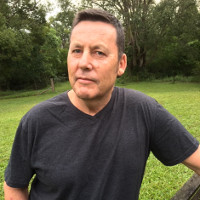 Tim Borella is an Australian author, mainly of short speculative fiction published in anthologies, online and in podcasts.
Tim Borella is an Australian author, mainly of short speculative fiction published in anthologies, online and in podcasts.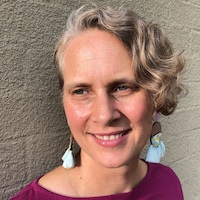 Merri Andrew writes poetry and short fiction, some of which has appeared in Cordite, Be:longing, Baby Teeth and Islet, among other places.
Merri Andrew writes poetry and short fiction, some of which has appeared in Cordite, Be:longing, Baby Teeth and Islet, among other places.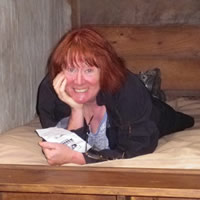 Margaret lives the good life on a small piece of rural New South Wales Australia, with an amazing man, a couple of pets, and several rambunctious wombats.
Margaret lives the good life on a small piece of rural New South Wales Australia, with an amazing man, a couple of pets, and several rambunctious wombats.